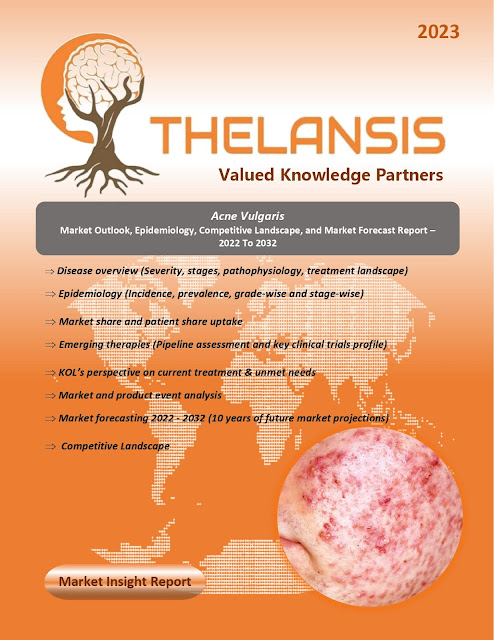Acute Hepatic Porphyria – Market outlook, Epidemiology, Competitive Landscape and Market Forecast Report – 2020 To 2030
A rare sub-group of porphyrias is characterized by the occurrence of neuro-visceral attacks with or without cutaneous manifestations. Acute hepatic porphyrias encompass four diseases: acute intermittent porphyria (the most common), variegate porphyria, hereditary coproporphyria, and hereditary deficit of delta-aminolevulinic acid dehydratase (extremely rare).
Etiology-
Each
acute hepatic porphyria is a result of a deficiency of one of the enzymes in
the heme biosynthesis pathway. These deficiencies result in an accumulation of
the precursors of porphyrins in the liver (delta-aminolevulinic acid, ALA, and
porphobilinogen, PBG) and also, in the case of variegate porphyria and
hereditary coproporphyria, an accumulation of porphyrins resulting in cutaneous
manifestations.
Epidemiology-
In the
United States, the prevalence of porphyria is approximated to be one in 25,000
individuals.[6] The worldwide prevalence is approximated to range from one in
500 to one in 50,000 individuals.
In the
majority of European countries, the prevalence of acute hepatic porphyrias is
around 1/75,000. In 80% of cases, the patients are female, with the majority
aged between 20 to 45 years.
The competitive
landscape of Acute Hepatic Porphyria includes country-specific approved as well
as pipeline therapies. Any asset/product-specific designation or review and
Accelerated Approval are being tracked and supplemented with analyst
commentary.
KOLs insights of Acute
Hepatic Porphyria across 8 MM market from the centre of Excellence/ Public/
Private hospitals participated in the study. Insights around current treatment
landscape, epidemiology, clinical characteristics, future treatment paradigm,
and Unmet needs.
Acute
Hepatic Porphyria Market Forecast:
Patient Based Forecast Model (MS. Excel Based Automated Dashboard) which Data
Inputs with sourcing, Market Event, and Product Event, Country specific
Forecast Model, Market uptake and patient share uptake, Attribute Analysis,
Analog Analysis, Disease burden, and pricing scenario, Summary, and Insights.
S. No Asset Company Stage
1 Givosiran Alnylam
Pharmaceuticals Phase 3




Comments
Post a Comment